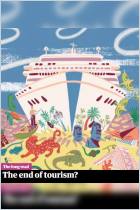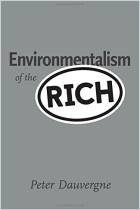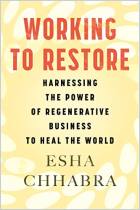In Barcelona, residents are fed up with throngs of tourists traipsing through their neighborhoods. Near Yellowstone National Park, local officials warn visitors not to get too close to wildlife after a bison injured a careless selfie-seeker. Travel writer Paige McClanahan ably underscores the costs of overtourism in this thought-provoking work. She has little patience for tourist-trap visitors behaving badly, but to McClahanan’s credit, she isn’t doctrinaire. She acknowledges that even well-meaning travelers can blur the lines between responsible and exploitive travel.
For better and for worse, tourism is growing as a part of the global economy.
Tourism has emerged as a major force in international commerce. As of 2019, travel accounted for 10% of worldwide economic output and for more than 10% of jobs. In 2019 alone, cross-border visitors spent $1.9 trillion on travel. Those eye-popping numbers are only getting larger — tourism growth is outpacing overall economic growth. Because so many people are traveling across borders, tourism has become an important means of cultural exchange. Tourism can be a force for good — treasures, both natural and manmade, are preserved because they’re tourist attractions. But tourism can go too far, and when that happens, local economies become skewed and unique cultures are hollowed out.
Tourism gets a bad rap, often well-deserved. The stereotypical tourist is loud and haughty, uninterested in the culture or people of his or her destination. For this breed of tourist, travel offers little more than a chance to take a selfie and cross another line off the bucket list before retreating to the nearest Starbucks. The “old tourist” spreads around some cash but generally proves a destructive ...



















Comment on this summary